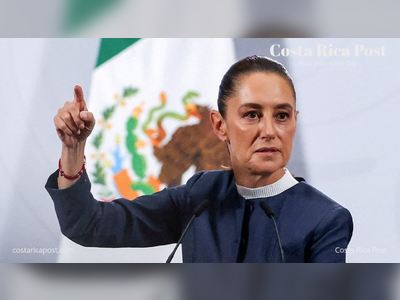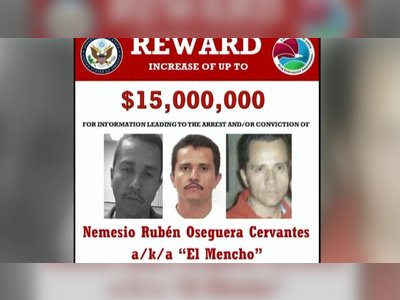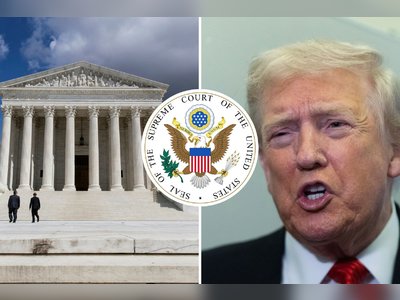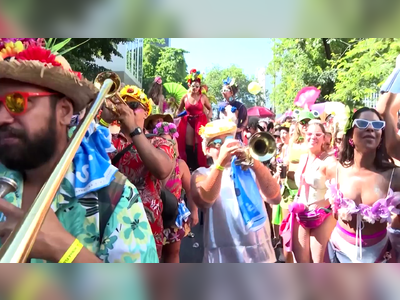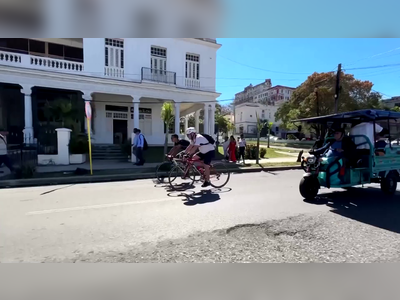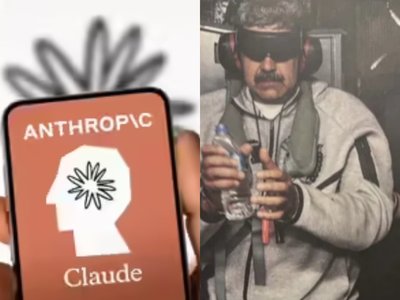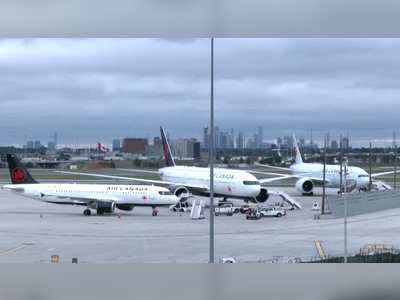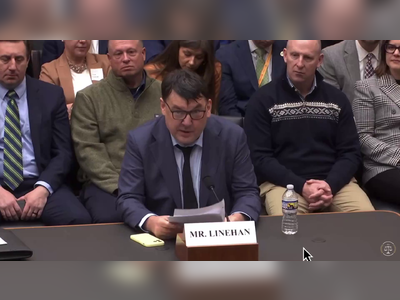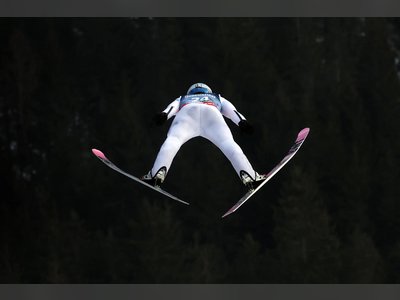
Legal Challenge Raised Against Cultural Declaration Decree in Costa Rica
Attorney Giovanni Delgado contests the new regulations introduced by President Rodrigo Chaves and Minister Jorge Rodríguez for potentially violating citizen rights.
Giovanni Delgado, an attorney and member of the Marcha de la Diversidad organization in Costa Rica, has filed a constitutional appeal against President Rodrigo Chaves and Minister of Culture Jorge Rodríguez regarding a recently enacted decree that partially reforms the regulations for declaring cultural interest.
Delgado contends that the new regulations infringe upon rights related to association, freedom of expression, and religious freedom.
The decree modifies several articles of the existing regulations with the intention of clarifying and detailing the requirements that cultural projects or products must meet to be recognized as of cultural interest.
Delgado has expressed concern that these changes may violate constitutional and human rights and undermine the promotion of cultural life and the protection of artistic heritage.
The appeal is currently under review for admissibility, assigned the case number 25-007637-0007-CO. Delgado has also requested precautionary measures from the court due to the alleged rights violations and the constitutional principles at stake.
One modification highlighted by Delgado as problematic is Article 4, which outlines activities, groups, collectives, projects, or cultural products that are “not eligible for declaration as of cultural interest.” He argues that this provision implies a prejudicial exclusion of various organizations and groups from obtaining such recognition.
Specifically, Article 4 states that groups, associations, foundations, collectives, television channels, radio stations, cultural houses, cultural centers, academies, and any other organization or site are ineligible for cultural interest declarations.
Additionally, cultural activities, projects, or products of a religious nature are also excluded unless they are intended to support cultural expressions linked to declarations of intangible cultural heritage, backed by specific laws or conventions.
Delgado asserts that this article could be subject to ambiguous interpretations, given historical precedent where certain groups have previously received cultural interest recognition.
He argues that this restriction violates the right to association, enabling individuals to form groups without contravening legal norms, and poses a threat to religious and expressive freedoms.
The attorney further notes a contradiction in Article 2, which prohibits cultural declarations from resulting in fiscal, financial, or material benefits from the state while simultaneously empowering the Ministry of Public Works and Transport (MOPT) to consider cultural declarations as “of public interest” under its own regulations, potentially allowing for the use of public spaces.
Despite the administration’s rationale of refining regulatory concepts, Delgado points out that the amendments lack specific technical parameters or criteria detailing how a cultural interest declaration can be revoked.
He believes there are sufficient legal grounds to foresee that the appeal will be accepted for thorough examination, with a possibility of declaring the decree invalid as published in La Gaceta.
Furthermore, Delgado claims that Chaves and Rodríguez are transgressing various articles of the Political Constitution, including Articles 1, 25, 28, 67, 75, and 89. He asserts that they are also violating provisions of the Universal Declaration of Human Rights, which ensures the freedom of thought, religion, and the right to access and enjoy cultural life, as well as the Inter-American Convention on Human Rights, which establishes rights related to peaceful assembly, association based on interests, equality before the law, and the enjoyment of cultural development.
The implications of the decree extend to notable events such as the 2024 March of Pride.
In June 2024, Chaves revoked the cultural interest declaration for the March of Pride one day before the event was scheduled to take place.
In response, Giovanni Delgado filed an appeal against the president, which was ruled in his favor by the Constitutional Chamber.
The ruling determined that Chaves had flagrantly violated the fundamental rights of a vulnerable minority population, specifically the LGTBIQ+ community.
The court concluded that while a cultural interest declaration does not guarantee fiscal or material benefits, it significantly impacts societal visibility and awareness towards the event and its target population.
Following the revocation, it was noted that the organizers had complied with all procedural requirements in a manner consistent with past years, with the declaration previously endorsed by the then Minister of Culture, Nayuribe Guadamuz, and Jorge Rodríguez on behalf of President Chaves.
On the evening of June 29, the day the revocation was announced, Chaves also dismissed Guadamuz from her position as the head of Culture and Youth, asserting that she had managed the declaration without his authorization or that of his office.
That same day, the president also removed the Commissioner for Social Inclusion, Ricardo Sossa Ortiz, from his post.
Delgado contends that the new regulations infringe upon rights related to association, freedom of expression, and religious freedom.
The decree modifies several articles of the existing regulations with the intention of clarifying and detailing the requirements that cultural projects or products must meet to be recognized as of cultural interest.
Delgado has expressed concern that these changes may violate constitutional and human rights and undermine the promotion of cultural life and the protection of artistic heritage.
The appeal is currently under review for admissibility, assigned the case number 25-007637-0007-CO. Delgado has also requested precautionary measures from the court due to the alleged rights violations and the constitutional principles at stake.
One modification highlighted by Delgado as problematic is Article 4, which outlines activities, groups, collectives, projects, or cultural products that are “not eligible for declaration as of cultural interest.” He argues that this provision implies a prejudicial exclusion of various organizations and groups from obtaining such recognition.
Specifically, Article 4 states that groups, associations, foundations, collectives, television channels, radio stations, cultural houses, cultural centers, academies, and any other organization or site are ineligible for cultural interest declarations.
Additionally, cultural activities, projects, or products of a religious nature are also excluded unless they are intended to support cultural expressions linked to declarations of intangible cultural heritage, backed by specific laws or conventions.
Delgado asserts that this article could be subject to ambiguous interpretations, given historical precedent where certain groups have previously received cultural interest recognition.
He argues that this restriction violates the right to association, enabling individuals to form groups without contravening legal norms, and poses a threat to religious and expressive freedoms.
The attorney further notes a contradiction in Article 2, which prohibits cultural declarations from resulting in fiscal, financial, or material benefits from the state while simultaneously empowering the Ministry of Public Works and Transport (MOPT) to consider cultural declarations as “of public interest” under its own regulations, potentially allowing for the use of public spaces.
Despite the administration’s rationale of refining regulatory concepts, Delgado points out that the amendments lack specific technical parameters or criteria detailing how a cultural interest declaration can be revoked.
He believes there are sufficient legal grounds to foresee that the appeal will be accepted for thorough examination, with a possibility of declaring the decree invalid as published in La Gaceta.
Furthermore, Delgado claims that Chaves and Rodríguez are transgressing various articles of the Political Constitution, including Articles 1, 25, 28, 67, 75, and 89. He asserts that they are also violating provisions of the Universal Declaration of Human Rights, which ensures the freedom of thought, religion, and the right to access and enjoy cultural life, as well as the Inter-American Convention on Human Rights, which establishes rights related to peaceful assembly, association based on interests, equality before the law, and the enjoyment of cultural development.
The implications of the decree extend to notable events such as the 2024 March of Pride.
In June 2024, Chaves revoked the cultural interest declaration for the March of Pride one day before the event was scheduled to take place.
In response, Giovanni Delgado filed an appeal against the president, which was ruled in his favor by the Constitutional Chamber.
The ruling determined that Chaves had flagrantly violated the fundamental rights of a vulnerable minority population, specifically the LGTBIQ+ community.
The court concluded that while a cultural interest declaration does not guarantee fiscal or material benefits, it significantly impacts societal visibility and awareness towards the event and its target population.
Following the revocation, it was noted that the organizers had complied with all procedural requirements in a manner consistent with past years, with the declaration previously endorsed by the then Minister of Culture, Nayuribe Guadamuz, and Jorge Rodríguez on behalf of President Chaves.
On the evening of June 29, the day the revocation was announced, Chaves also dismissed Guadamuz from her position as the head of Culture and Youth, asserting that she had managed the declaration without his authorization or that of his office.
That same day, the president also removed the Commissioner for Social Inclusion, Ricardo Sossa Ortiz, from his post.
